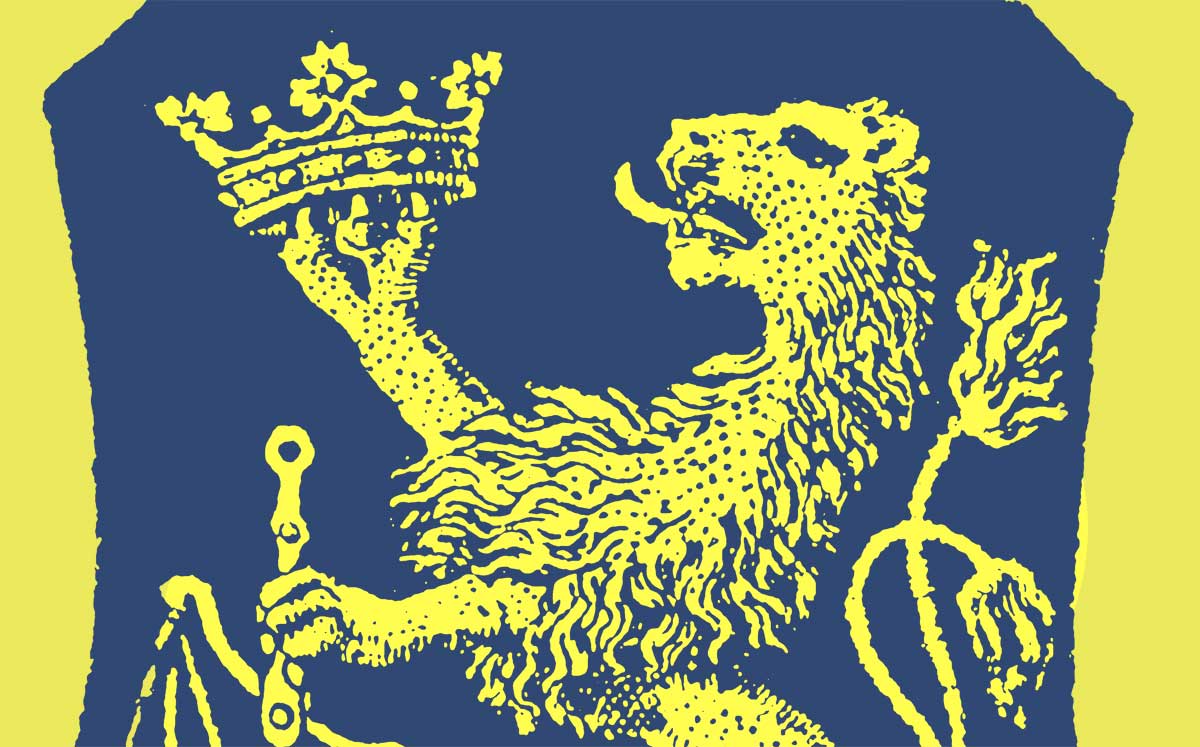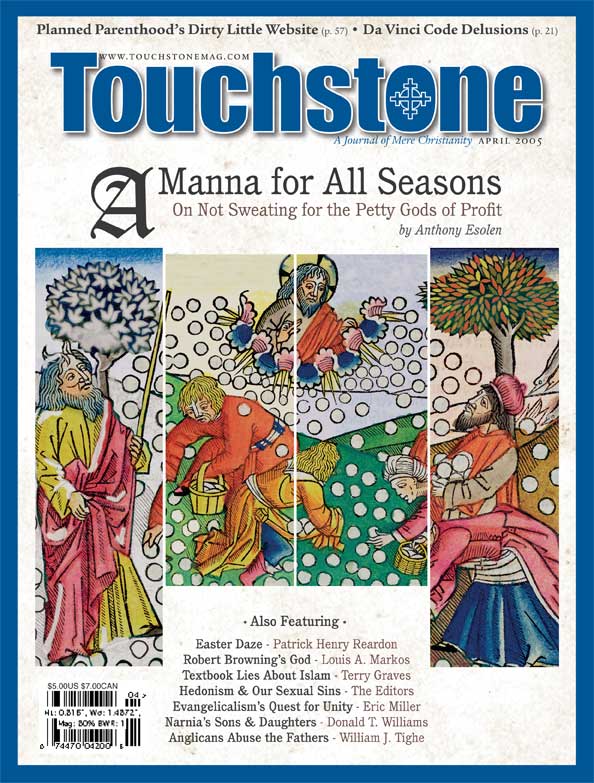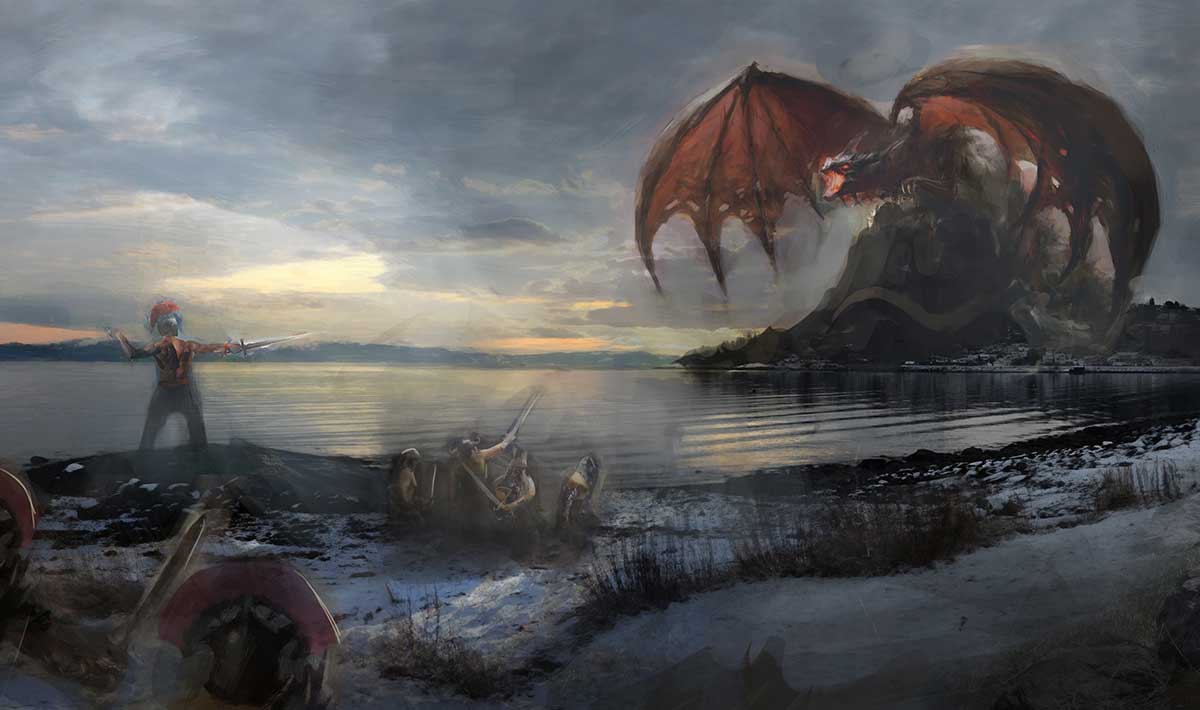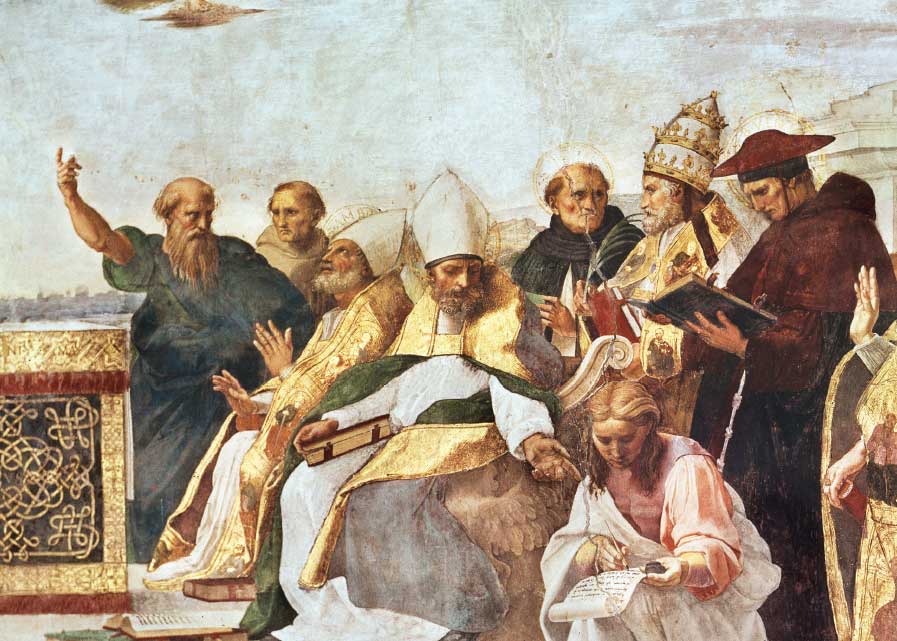View
Lions of Succession
Donald T. Williams on Being a Free Narnian & the Joy of Subordination
Few traditional concepts are more foreign to the modern (or postmodern) man than that of hierarchy, or right order. Having lost the concept of a divinely articulated and structured creation, our contemporaries are left facing a world they can only understand as arbitrary. Therefore, they cannot distinguish authority from mere power, vocation from mere opportunity, proclamation from propaganda, parental authority from mere selfishness, male headship from male domination. More importantly, they have lost the ability even to imagine that there is any difference between these things, or that hierarchy may be necessary to human flourishing.
By rebelling against God, we have corrupted not only ourselves but also the order he designed for the world, so the hierarchy he intended to be harmonious and benevolent is too often actually experienced in a fallen world as discordant, brutal, and oppressive. And this is true among Christians.
That is why our attempts to explain the biblical view of hierarchy not only fall on deaf ears but arouse hostility: We are heard as if we were actually supporting the idea of domination (particularly of men over women). We are heard that way even within the church. But we cannot abandon hierarchy because it has been corrupted; rather, we must seek to restore it by God’s grace so that it works properly again. One way of doing that is to create pictures of what such an order would look like. And some of the most effective pictures ever created are found in C. S. Lewis’s greatest work, The Chronicles of Narnia.
Harmonic Powers
Lewis tried to rehabilitate the concept of hierarchy for modern readers, explaining it in works like Preface to ‘Paradise Lost’ and The Discarded Image, and portraying it positively in his fiction. The universe, the community, or the individual person is in harmony when matter obeys soul and soul obeys Reason, which reflects the mind of God.
Or, to put it another way, as Lewis put the matter in the Space Trilogy, beasts should obey hnau (animals endowed with Reason, like Man, Hross, and Sorn), hnau should obey eldila (something like an angel), eldila should obey their Oyarsa (an archangel), and the oyeresu should obey Maleldil (God). In the real world, this order is reflected on many levels in the divinely constituted order (“the powers that be”) in the state, the church, and the family.
The Chronicles of Narnia abound with portraits of hierarchy in which the proper rule of heads and the proper obedience of subjects are beautiful. We see the responsibility of headship in Reepicheep’s refusal to let Caspian accompany him on his last quest in Voyage of the ‘Dawn Treader’: “You are the king of Narnia. You break faith with all your subjects . . . if you do not return. You shall not please yourself with adventures as if you were a private person.”
We see proper obedience in Trumpkin, who is given an order with which he disagrees in Prince Caspian: “You are my king. I know the difference between giving advice and following orders. You’ve had my advice, and now it’s time for the orders.” And we see these things even in Aslan himself, who obeys the highest nature there is: his own. Jill had asked him in The Lion, the Witch, and the Wardrobe whether he couldn’t bypass the Emperor’s principles. “‘Work against the Emperor’s magic?’ said Aslan, turning to her with something like a frown on his face. And no one ever made that suggestion to him again.”
Aslan’s Talking Beasts contrast both with the dumb beasts of Narnia and with the human children (Sons of Adam and Daughters of Eve) from England who are sent to Narnia by magic to be its Kings and Queens. Narnia functions properly only when human beings rule.
So basic is this principle that even Jadis, the Witch in The Lion, the Witch, and the Wardrobe, must pretend to be human in order to perpetuate her tyranny. “Isn’t the Witch herself human?” the children ask. “She’d like us to believe it,” said Mr. Beaver, “and it’s on that that she bases her claim to be Queen. But she’s no Daughter of Eve.” She is descended from Giant and Jinn and her claim is fraudulent.
Donald T. Williams is Professor Emeritus of Toccoa Falls College. He stays permanently camped out on the borders between serious scholarship and pastoral ministry, between theology and literature, and between Narnia and Middle-Earth. He is the author of fourteen books, including Answers from Aslan: The Enduring Apologetics of C. S. Lewis (DeWard, 2023). He is a contributing editor of Touchstone.
bulk subscriptions
Order Touchstone subscriptions in bulk and save $10 per sub! Each subscription includes 6 issues of Touchstone plus full online access to touchstonemag.com—including archives, videos, and pdf downloads of recent issues for only $29.95 each! Great for churches or study groups.
Transactions will be processed on a secure server.
more on C. S. Lewis from the online archives
more from the online archives
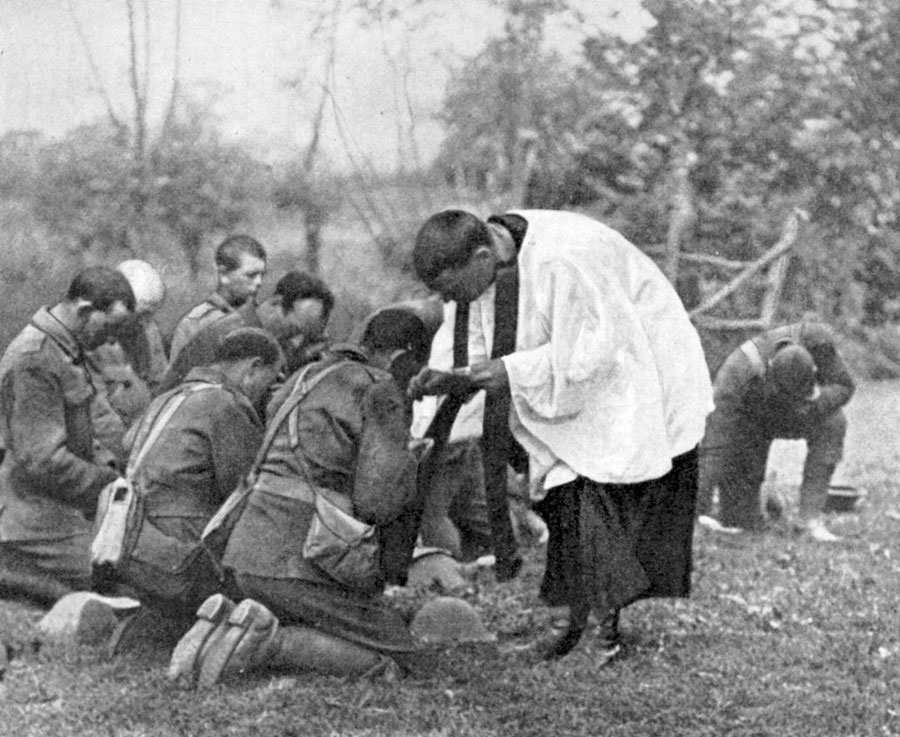
35.4—Jul/Aug 2022
The Death Rattle of a Tradition
Contemporary Catholic Thinking on the Question of War by Andrew Latham
calling all readers
Please Donate
"There are magazines worth reading but few worth saving . . . Touchstone is just such a magazine."
—Alice von Hildebrand
"Here we do not concede one square millimeter of territory to falsehood, folly, contemporary sentimentality, or fashion. We speak the truth, and let God be our judge. . . . Touchstone is the one committedly Christian conservative journal."
—Anthony Esolen, Touchstone senior editor





